
An expedition with PONANT & NATIONAL GEOGRAPHIC is truly a one of a kind experience. With National Geographic naturalist experts and photographers onboard to enrich your journey with the ultimate in-the-field learning experience, these expeditions are for travellers with a real passion for understanding the world around them.
Travellers with a keen interest in environmental science and the natural world will revel in the opportunity to both take in the stunning natural wonders visited on these cruises, as well as learn from some of the leading figures in their scientific fields. M Jackson is a renowned glaciologist and National Geographic expert joining guests onboard to impart her encyclopaedic knowledge of our world’s ice. With over a decade of experience working with glaciers and ice formations, and trained in science communication, Jackson brings the ultimate enhancement to your discovery of glacier-filled destinations.
Why did you choose to pursue a career in glaciology? What do you like most about glaciers and being a Glaciologist?
I did not intentionally pursue a career focussing on glaciology. But regardless of whatever I was studying in school, glaciers kept popping up — they became an organising point for my career. Whether I’m researching landscape change, or writing a novel, or painting, or exploring, glaciers are there in the front of my mind. What I love the most about glaciers is that they’re incredibly wild and free and I feel I’m most alive when I am with them. As a glaciologist, I love that I get to shape my own career and pursue my own area of interest in whatever form that takes. There is so much to understand and study about ice that the field is incredibly wide and open.
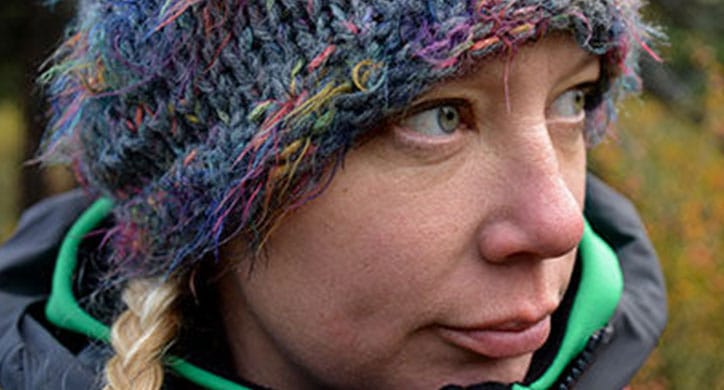
How did you become a glaciologist, what is your story? And what does a Glaciologist do?
I’m a glaciologist and geographer dedicated to understanding and protecting our world’s ice. I do this work because I’ve long been fascinated and curious about glaciers—there is something almost ineffable about them that I enjoy working with. Glaciers make me feel alive and give me a sense of purpose. Too many people dismiss glaciers as unsavable — permanent victims of climatic changes. I don’t. I think we can save our world’s ice, and I work each day doing original research, advocacy, and communication. I lecture all over the world, write books, give interviews, do whatever I can to keep people talking about glaciers and thinking about a future that includes ice.
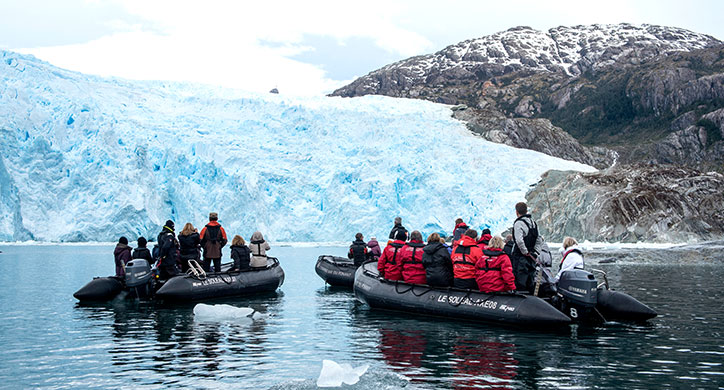
Tell us about glaciers - what are they and what do they do?
Glaciers are natural wonders. To me, they’re shapeshifters, wild and alive, they hold the keys to the secrets of both humanity’s past and future. They’re our global libraries, for millions of years recording the very air we breathe. Glaciers regulate our global water budget, store and release water on a planetary scale. To live on Planet Earth is to live on a planet with vibrant, dynamic ice.
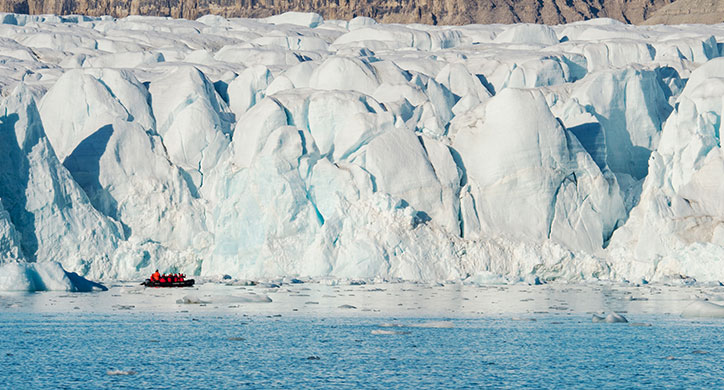
Do you have any concerns about the future of glaciers? What is the impact climate change is having on them?
At times, it is completely shattering to witness the glaciers I’ve dedicated my life to understanding and protecting dissolve away at rates never before seen in human history. In many ways, I’m friends with glaciers that I’ve returned to year after year after year, and I care about what happens to them. Too often now, when I return to glaciers in Alaska, in Iceland, in Antarctica, I barely recognise the ice. It’s deteriorated so much, so fast. I fluctuate between such sadness and anger. The scale of glacier loss today is unprecedented, and it is deeply intertwined with ongoing climatic changes. This is what I think about, and this is what drives me to work harder, to travel on NGS expeditions and educate people about the ice they’re seeing. We need to learn about ice now, and learn to care about ice, because we are running out of time.
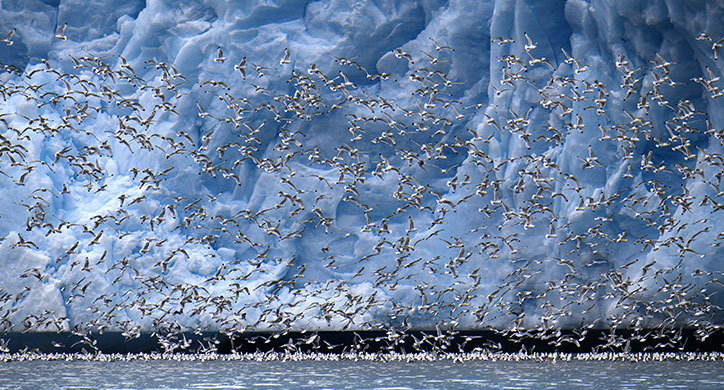
How did you come to work with National Geographic and how long have you been working with them?
I’ve been working with the National Geographic Society for around a decade—and it has consistently been one of the most rewarding experiences of my life.
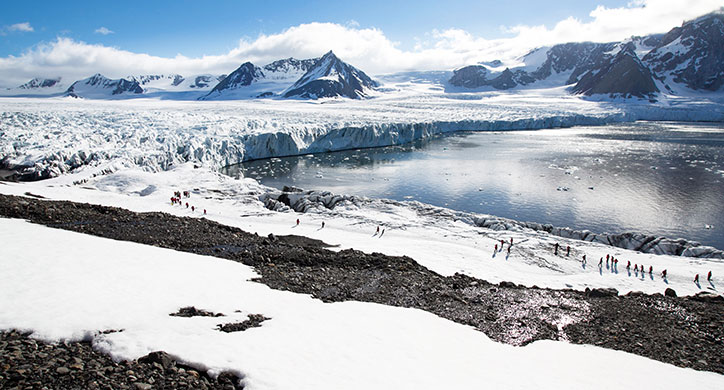
What does being a National Geographic Expert mean? What type of projects do you work on with them?
Expeditions that have a National Geographic expert are unique—guests have continual trip-long access to some of the world’s leading experts in topics unique to each trip. I’m a glaciologist and have been working with ice worldwide for over a decade now, and I bring an enormous body of knowledge to these expeditions. As an expert, I’ve also been trained by National Geographic in science communication—on how to share my knowledge in a way that transcends disciplines, backgrounds and languages.
You have already been on two PONANT & NATIONAL GEOGRAPHIC Expeditions to Alaska and Antarctica, what was your role on these cruises and what did you like most about PONANT and this expedition/experience?
The two other expeditions I’ve been on in Alaska and Antarctica were simply amazing. My role was to give both formal lectures and many, many informal field talks. I got to talk to guests about places where I was doing firsthand research, explain what we were seeing and what forces were at play, and answer questions. It was great on my end to interact with guests, learn from them, and share my specialised knowledge of these remote places we visited.
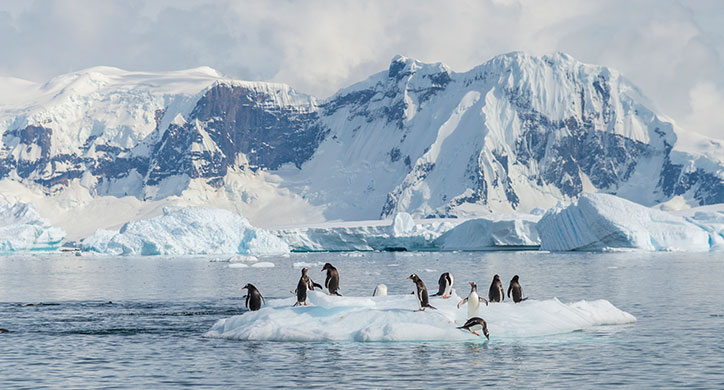
You will soon join us onboard for the Greenland and Newfoundland cruise departing 19 August 2020 - what can guests on board expect to learn from you? What lectures will you be running & will you join guests ashore to offer your knowledge on what they are seeing?
I’ve been working with glaciers worldwide for well over a decade, and I’m looking forward to teaching guests everything they need to know to be able to understand the glaciers they’re seeing on this expedition. I’ll be giving guests a series of talks walking them through the basics of glaciers, what is happening to glaciers in the places we’re visiting, and how people everywhere are connected to glaciers. And, of course, I’ll be ashore each day with guests answering questions and sharing my knowledge!
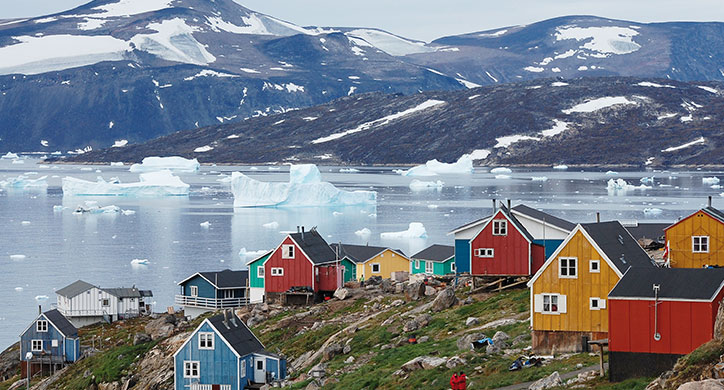
Have you travelled to Greenland and Newfoundland before and if so what are you looking forward to the most about returning?
I have travelled to Greenland before and I am looking forward to this trip because much of my work has involved being in the centre of the island where the landscape is often entirely white: white ice, white sky, white tents. I’m looking forward to seeing colourful Greenland—the vivid fjords, bright blue tidewater glaciers, green mosses and lichens, and so much more. I always come away from Greenland feeling awed by the fierce tenacity of life.
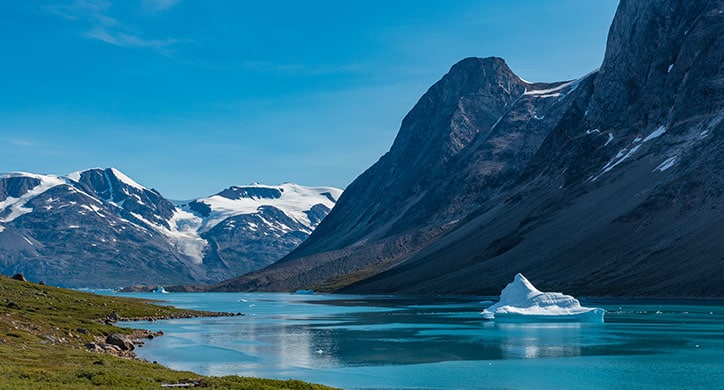
Will guests see glaciers on this on this cruise? What can they look forward to the most in this region?
I’m excited for this upcoming cruise because we’ll get to see glaciers big and small—coastal tidewater glaciers cascading off some of the most remote landscapes on this planet. We’ll get to see land shaped each day by ice, see forces creating (and destroying) before our very eyes. Itineraries like this are a once in a lifetime.
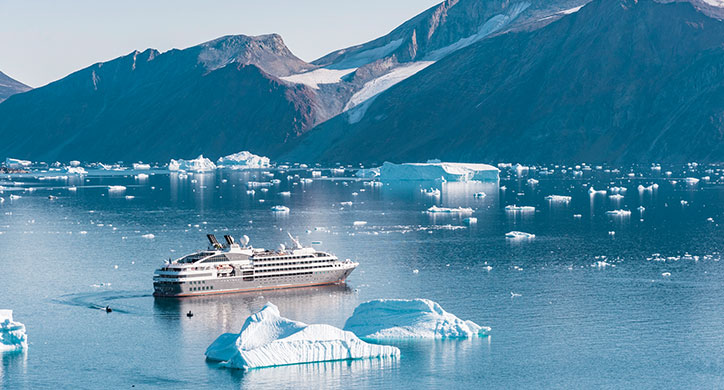
Want to join Ponant & National Geographic?
From the polar regions to the tropical climes of the South Pacific, join us on an educational journey that’s more than just a cruise.
Discover